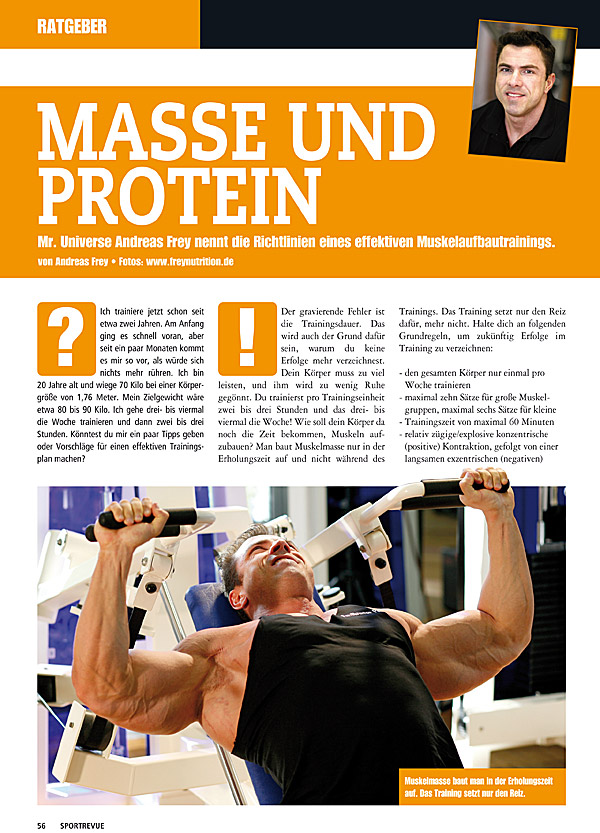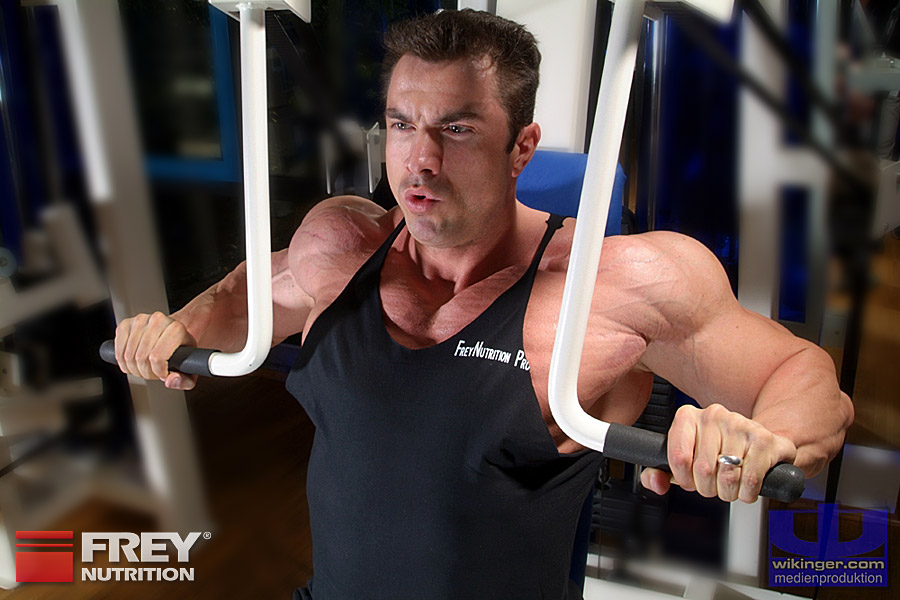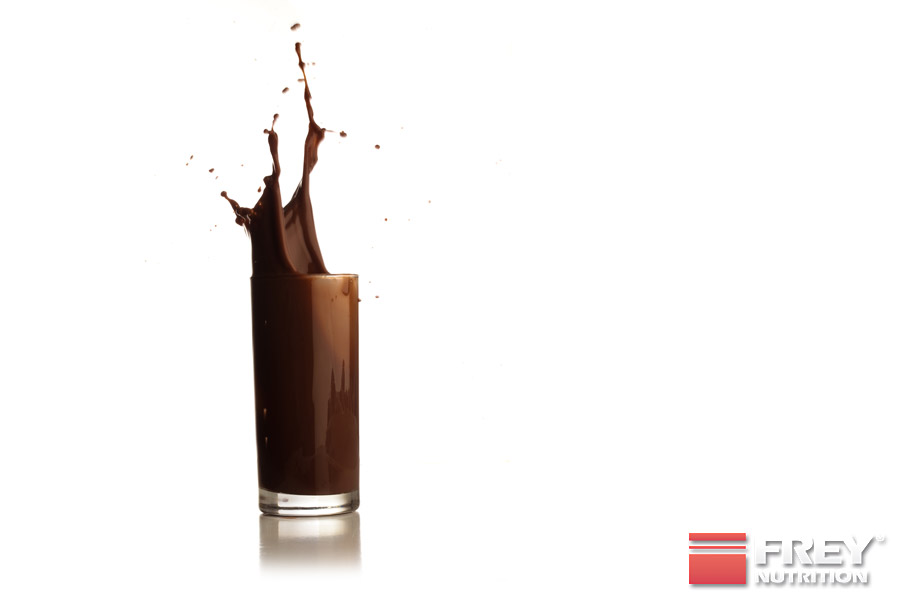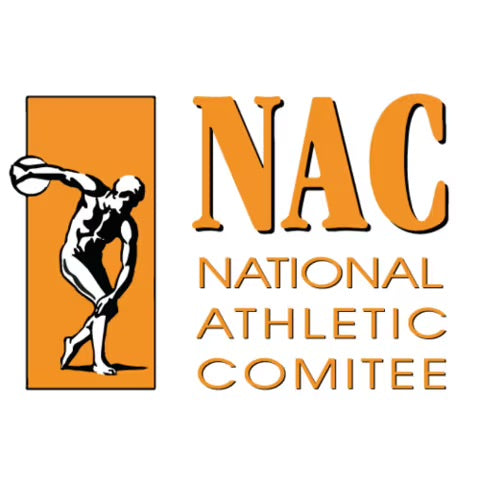WHAT GUIDELINES SHOULD BE FOLLOWED FOR EFFECTIVE MUSCLE BUILDING TRAINING?
?
I've been training for about two years now. At first I made rapid progress, but for the last few months I've felt like nothing's happening. I'm 20 years old and weigh 70 kilos and am 1.76 meters tall. My target weight would be around 80 to 90 kilos. I train three to four times a week for two to three hours. Could you give me some tips or suggestions for an effective training plan? ANSWER
!

You only build muscle mass during recovery time and not during training. Training only provides the stimulus, nothing more. Follow these basic rules to achieve success in training in the future:
- train the whole body only once a week
- maximum of ten sets for large muscle groups, maximum of six sets for small
- Training time of maximum 60 minutes
- relatively rapid/explosive concentric (positive) contraction, followed by a slow eccentric (negative)
- train cleanly, without cheating
- intensive training until muscle failure
- eight to twelve repetitions per working set
"Without an appropriate, targeted diet, the best training is doomed to failure and vice versa." (Quote: A. Frey)
But it is not just training that is responsible for success, i.e. muscle growth, but also nutrition. If training is optimized but nutrition is inadequate or vice versa, it will be difficult or even impossible to make progress.
Regarding nutrition, I recommend the articles in NUTRITION AREA on this page. There you will find many informative articles that will certainly help you. Good luck!
DOES HIGH PROTEIN INTAKE LEAD TO PREMATURE AGING?
?
I would like to know whether increased protein intake leads to premature aging? You often read about the negative effects of too much protein intake. But as an athlete, I have to eat more protein. What is the truth behind this claim? ANSWER
!
The fact that an increased protein intake leads to faster aging has not been scientifically confirmed or proven by any studies. Quite the opposite: proteins help to keep the body fit and healthy because they boost the metabolism in a natural way. Studies have been carried out on an increased protein intake over many years with no negative effects - neither on the aging process nor on a physiological level. In this context, I would like to mention the following studies:










